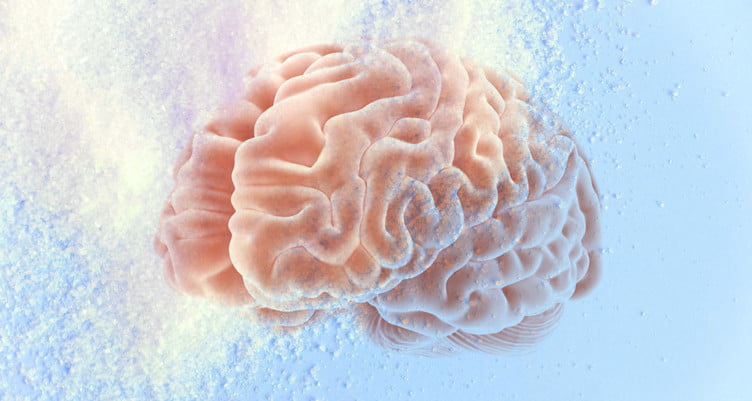Overindulgence in sweets can lead to five hours of hell.

This article was co-written by Teresa Aubele, Ph.D., and Susan Reynolds.
The average American consumes somewhere between two to three pounds of sugar each week. Over the last twenty years, our national sugar consumption exploded from 26 pounds to 135 pounds of sugar — per person — annually. Compare that to sugar consumption in the late 1800s, when the average consumption was five pounds per person per year. A time, incidentally, when heart disease and cancer were virtually unknown.
While your brain requires a pretty constant supply of the blood sugar product glucose in order to function properly, constantly eating refined sugars and slurping down sodas does not provide the best route for sugar intake. On the contrary, researchers at the Salk Institute in California found that high glucose levels resulting from quick, easy sugar intake slowly but surely damage cells everywhere in the body, especially those in the brain.
Unfortunately, having too little glucose and having too much glucose are both problematic. When your blood sugar levels drop, your hypothalamus sends out a distress signal that leads to the release of adrenaline to your liver, ordering it to turn excess fat into glucose. When you consume too much sugar, your pancreas secretes insulin to nudge that extra sugar into your cells, and too much insulin can deplete your normal glucose levels, depress your immune system, and lead to kidney disease. Plus, excess insulin also promotes fat storage, which sets up a vicious cycle. Either extreme can leave you feeling woozy, nervous, fatigued, and shaky.
Two additional reasons why excess refined sugar is detrimental to your brain:
1. A research group at the University of Wisconsin found that the brain may react to excess refined sugars found in food as if they were a virus or bacteria. The resulting immune response may cause cognitive deficits, such as those associated with Alzheimer’s disease.
2. High blood sugar coupled with performing a mentally challenging task is associated with high levels of cortisol — a stress hormone known to impair memory.
In other words, that second piece of cake at the company birthday party might stress out you, your body, and your brain . . . and affect your afternoon work efficiency!
Your Brain on Sugar
It’s pretty clear excessive glucose in the form of refined sugar can be very detrimental to your brain, ultimately affecting your attention span, your short-term memory, and your mood stability. Excessive refined sugar can:
- Block membranes and thereby slow down neural communication
- Increase free radical inflammatory stress on your brain. Free radicals can rupture cells.
- Interfere with synaptic communication
- Cause neurons to misfire and send erroneous messages that take time and energy to sort out
- Increase delta, alpha, and theta brain waves, which make it harder to think clearly
- Eventually damage your neurons
Is There Such a Thing As Healthy Sugar?
Not really . . . a simple sugar is a simple sugar. However, those occurring in real food, such as fructose in fruit and lactose in milk, also provide other nutrients and so are slightly more healthy than any other sugar. And even though health-food stores love to promote honey, molasses, maple syrup, or agave as natural sweeteners, they are still simple sugars, with the same fattening calories and little nutritive value as refined white sugar. They do, however, tend to be a tad sweeter, so maybe you’ll be happier with a smaller amount, but don’t kid yourself about them being healthier. Sugar is sugar, and you need to limit how much you consume on a daily basis.
Go Light on the Honey, Honey
Although honey is a natural sweetener, 96 percent of honey consists of the simple sugars fructose, glucose, and sucrose. Honey also has the highest calorie content of all sugars with 65 calories per tablespoon, compared to the 48 calories per tablespoon found in table sugar. The increased calories are bound to cause increased blood serum fatty acids, as well as weight gain, on top of the risk of more cavities.
Why Soda Crashes and Burns Your System
Your brain uses 65 percent of your body’s glucose, but too much or too little glucose can have a detrimental effect on brain function. One can of soda contains 10 teaspoons of table sugar, all of which floods into a bloodstream that typically contains a total of 4 teaspoons of blood sugar. The rush alerts your pancreas to release a lot of insulin. Some sugar is quickly ushered into the cells, including brain cells, and the rest goes into storage or fat cells. An hour later, your blood sugar may fall dramatically, creating low blood sugar, and these rapid swings produce symptoms of impaired memory and clouded thinking.
Why You Should Rethink Diet Soda
Unfortunately, diet soda is not the answer. In fact, diet soda causes serious negative reactions in your body. A recent study in the journal Psychological Science found that drinking diet soda may affect your ability to delay gratification. In studying those who drank regular soda versus those who drank diet soda, researchers found that those who drank regular soda were more likely to delay gratification, whereas those who drank diet soda didn’t show the same restraint. They linked the findings to the amount of blood glucose levels that sugar provides. Higher blood glucose levels energize our brains to be more future-oriented. Drinking a diet soda “tricks” your brain into thinking it’s getting a nice dose of sugar, which never comes. This causes your brain to interpret the lack of blood glucose as a calorie shortage, which makes your brain search for immediate refueling. The moral here is not to drink regular soda, but to fuel your brain with healthy foods that fulfill its need for blood glucose and maintain a healthier balance, thereby avoiding sugar highs and lows.
Drinking Diet Soda May Lead to a Stroke
In addition, recent research uncovered a possible link between drinking diet soda and suffering a stroke. Previous research had revealed that those who drank more than one soft drink a day, whether regular or diet, were more likely than nondrinkers to have metabolic syndrome, a cluster of risk factors including high blood pressure, elevated triglycerides, low levels of good cholesterol, high fasting blood sugar, and large waists.
When Hannah Gardener, an epidemiologist at the University of Miami Miller School of Medicine, studied approximately 2,500 people (average age of 69) over a period of nine years, she found that those who drank diet soda daily, compared to those who drank no soda, were 61 percent more likely to suffer a stroke. During what is known as the Northern Manhattan Study, Gardener controlled for such factors as age, gender, ethnicity, physical activity, calorie intake, smoking, and alcohol drinking habits. After controlling for the presence of metabolic syndrome, vascular disease in the limbs, and a history of heart disease, Gardener reviewed her results again and found the link was closer to 48 percent, which still poses a significant risk level.
Some fellow researchers noted that the study found a possible association between diet soda and stroke risk, without clearly demonstrating a cause and effect. Still, these dubious researchers also noted that Gardener’s results warranted more rigorous testing.
Do You Want to Go Through Five Hours of Hell?
If nothing in this column has convinced you that consuming excess sugar is a really bad idea, perhaps this will do the trick: Those days when you overindulge in sweet confections — be they decadent ice cream, two or three chocolate truffles, a huge slice of blueberry pie, a fistful of peanut butter cookies, or a twelve-ounce soft drink — you potentially trigger a boost in stress hormones that will last the shockingly long time of five hours. Five hours! During this time, your body is coping with excess insulin and suffers a depletion of healthy glucose levels. Consider that the next time you feel tempted by sugar-laden confections, and maybe settle for a small slice, one teensy scoop, half of a cookie, or just one truffle.
What it all adds up to, unfortunately, is that excess sugar consumption is bad for your brain. If you have a craving for sugar, try nature’s sugar in the form of fresh, unadorned fruits, such as blueberries, strawberries, raspberries, or apples, all of which are very good for your brain. Your brain will thank you later!
Source: https://www.psychologytoday.com
Disclaimer: We at Prepare for Change (PFC) bring you information that is not offered by the mainstream news, and therefore may seem controversial. The opinions, views, statements, and/or information we present are not necessarily promoted, endorsed, espoused, or agreed to by Prepare for Change, its leadership Council, members, those who work with PFC, or those who read its content. However, they are hopefully provocative. Please use discernment! Use logical thinking, your own intuition and your own connection with Source, Spirit and Natural Laws to help you determine what is true and what is not. By sharing information and seeding dialogue, it is our goal to raise consciousness and awareness of higher truths to free us from enslavement of the matrix in this material realm.
 EN
EN FR
FR

























